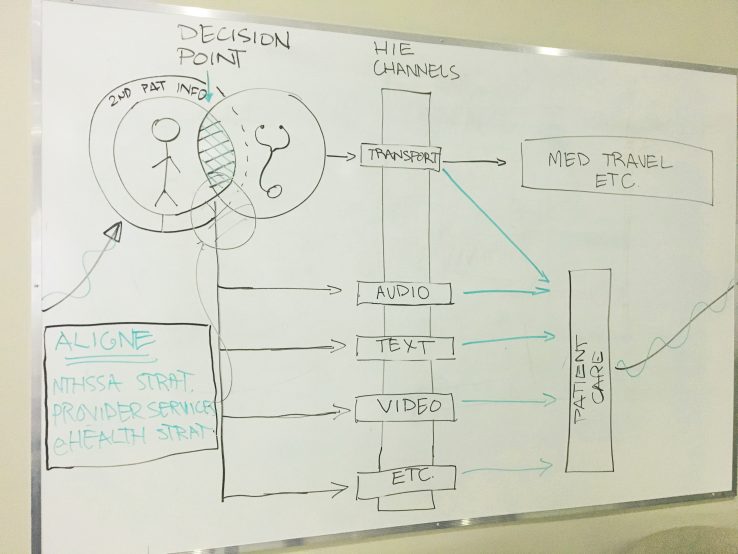
With the summer sun shining an average twenty-two hours a day in Yellowknife, capital of the Northwest Territories, alongside its scenic and rural landscape and slightly cooler temperatures, it would be easy for one to think of this northern region as vastly different from Southern Ontario’s urban city centers. Yet when it comes to healthcare, one Master of Health Informatics student found that the two regions are far more similar than she had first expected.
“When I first arrived in Yellowknife, I expected to face a completely new set of healthcare challenges but as I delved into my project, I realized that many of the challenges my patients faced in Ontario were similar to those of the Northwest Territories. Access to the right medical care at the right time is an incredibly universal issue,” said Allie Margaret May who embarked upon her practicum placement with the Northwest Territories government this past summer. As part of the Master of Health Informatics degree at the Institute of Health Policy, Management and Evaluation, students are expected to complete a four month practicum placement with a healthcare organization and report on their experience.
Working with the Chief Medical Information Officer, Dr. Ewan Affleck, May sought to bring a vision of equitable access to life through analyzing effective communication models like eConsultation in order to improve health outcomes. Being open and adaptive was a key part of this process that May soon learned as she participated in the team’s shift in focus to an entirely different model of communication; health information exchange. It had been determined that this type of foundation and network would allow for better communication between clinicians and patients.

“It became clear to us that eConsultation was one piece of a much bigger puzzle,” said May, “we realized that we needed to first implement a system that would be able to function on a more robust level as the territory expanded its programs.” Having this type of communication network in place restructures the way the health system works and would give clinicians the ability to access more patient-centered technology solutions that will ultimately improve the patient experience.
One example of this would be the implementation of secure mobile devices. If a patient needing assessment was cut off from treatment or access to a health care provider, due to extreme weather in a rural area of the territory, they would not need to be medically evacuated into the city in order to receive treatment. Instead, by utilizing portable technology, they would be able to speak with or have their symptoms assessed by a care provider remotely.
With this new framework in mind, May was given the task of spearheading a health information exchange strategy that would restructure the way clinicians communicate with each other. Conducting an environmental scan, she surveyed people from all over the Northwest Territories and its surrounding jurisdictions, from nurses in remote rural regions to neurologists in Edmonton, Alberta. This type of inter-province collaboration not only provides strong leadership, but also ensures that patient advocacy groups and patients themselves are able to have their voices heard throughout the change process.
One of the many unique aspects of working in the Northwest Territories according to May was the dedication she saw from her colleagues to their fellow citizens and the healthcare system. “They were also very open in allowing me to participate in the decision making process,” said May. “It was empowering for me as an emerging professional and made me even more passionate about universal access to care as well as more cognizant of barriers that inhibit that, such as the social determinants of health, which are not always identified.”
Moving forward, May will build what she has learned into a business case to make recommendations for next steps in the development of an information network platform. This experience is one she is quick to say was “eye-opening.” Though it was challenging to move outside of her comfort zone, and beyond the familiarity of her surroundings, choosing to accept this practicum in Yellowknife was an exercise in personal development.
“Health Informatics is a dynamic field,” said May. “If you are willing to become an adaptive person with an ability to enter a new environment and succeed, your chances of performing successfully as a health informatician are that much greater.”
Related News

Sign up for IHPME Connect.
Keep up to date with IHPME’s News & Research, Events & Program, Recognition, e-newsletter.
Subscribe to Connect Newsletter
Get in Contact
Communications
Marielle Boutin
Email Address: ihpme.communications@utoronto.ca





